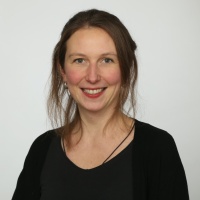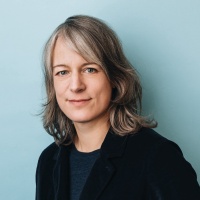14:30 - 15:00 Lecture: Climate protection in museums: acting ecologically and utilising potential
Making museum work sustainable is not only a necessity and a challenge, but also an opportunity for museums. As places of education and exchange, they have a special social responsibility in the area of sustainability. The German Museums Association presents working aids and practical examples and highlights the potential, challenges and prospects of climate protection in museums
15:00 -15:30 Lecture: A future-oriented, sustainable cultural organisation: climate protection and adaptation at the Deutsches Hygiene-Museum Dresden
The Deutsches Hygiene-Museum deals with the question ‘How do we want to live?’ from different perspectives and thus puts the challenges of a globally changing society up for discussion. As a ‘museum about people’, it is therefore also committed to addressing climate change and issues of ecology and sustainability - in its exhibitions, in its educational work and in its events programme, but also in the running of the institution itself. The museum has set itself the goal of becoming a sustainable cultural institution. The sustainability process is holistically and strategically aligned with the mission statement and all areas of the museum, from the programme to building management, from exhibition construction to everyday administrative processes.
Examples and challenges for reducing greenhouse gas emissions in the museum's own operations will be presented, as well as measures to increase biodiversity, such as the redesign of the 3,000 m2 gravelled area of the Deutsches Hygiene-Museum's inner courtyard into a green and near-natural thicket. In addition, practical experiences of CO2 balancing are shared and projects for climate adaptation of the operation, from the flood-protected museum depot to the re-utilisation of rainwater in its own cistern, are presented. .
15:30 -16:00 Lecture: What? Where? How? - Sustainable exhibiting at the museum using the example of the Jewish Museum Berlin
One of the values of the Jewish Museum Berlin is to focus on lasting quality and to make cultural heritage permanently accessible. The aim is to make sustainable use of material and human resources. What does this mean for one of the core tasks of a museum: exhibiting? From programmatic decisions to the storage of furniture, sustainability aspects can be taken into account in all phases of exhibition making. Strategies of sufficiency are just as important as those of efficiency. Under the guiding questions ‘What?’, ‘Where?’ and ‘How?’, the lecture will present examples of some starting points in the fields of programme work, mobility and materials.
Notice
The program in the KULTURERBE-Forum will be translated into English or German by Video.Taxi AI. You have two options to follow the translation on site:
1. transcribed translation on your cell phone:
You can access the automatic translation in text form directly on your smartphone via the
Video.Taxi
website. If you have headphones, you can also follow the translation via them.
2. Translation via headset (beta version):
Headsets are available for translation as sound. Please contact our colleague at the headset issue desk.







